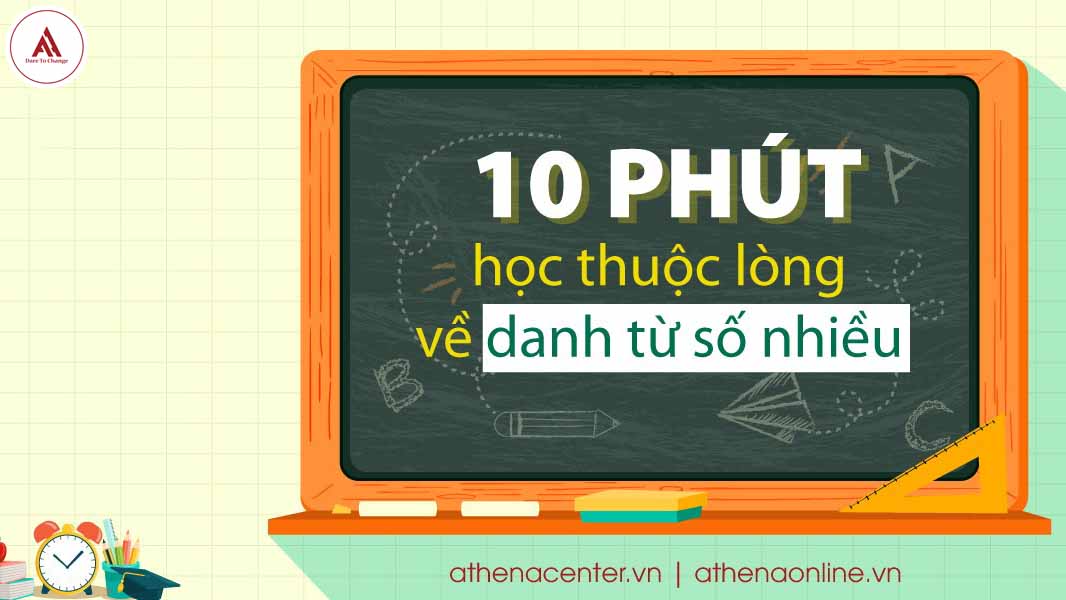Đề thi thử lần 2: Môn tiếng Anh kỳ thi THPTQG năm 2020 - Chuyên Quốc học Huế
|
Cô Đỗ Vân Anh |
KÌ THI TỐT NGHIỆP TRUNG HỌC PHỔ THÔNG QUỐC GIA NĂM 2020 Bài thi: NGOẠI NGỮ; Môn thi: TIẾNG ANH CHUYÊN QUỐC HỌC HUẾ - LẦN 2 |
Read the following passage and mark the letter A, B, C, or D to indicate the correct word or phrase that best fits each of the numbered blanks.
EXERCISE AND WEIGHT LOSS
There are a number of myths about exercise and weight loss which should be dispelled. It is often said that you will put on weight because exercise increases the appetite. In actual fact, regular exercise helps to reset the feeding control mechanism. Those (1) __________ exercise regularly have a greater ability to accurately (2) __________ the amount of food they desire with the amount their body Heeds. A second myth concerns the ability of exercise to (3) __________ excess fat. Many mistakenly believe that you would have to work out all day to get rid of the pounds they need to lose. (4) __________, this argument fails to take into (5) __________ the regularity of exercise. Although only a small number of calories are used up with each bout of exercise, the cumulative effect is great because exercise speeds up the metabolic rate so that even when exercise has finished, energy will continue to be consumed
Question 1. A. whose B. who C. whom D. which
Question 2. A. pair B. check C. match D. contrast
Question 3. A. root out B. wipe out C. give up D. burn off
Question 4. A. However B. Because C. Therefore D. Moreover
Question 5. A. consideration B. stock C. importance D. significance
Mark the letter A, B, C, or D to indicate the sentence that best combines each pair of sentences in the following questions.
Question 6. John has to work at weekends. He won't go on a picnic with us.
A. Unless John works at weekends, he will go on a picnic with us.
B. But for his working at weekends, John wouldn't go on a picnic with us.
C. Provided John works at weekends, he will go on a picnic with us.
D. If John didn't have to work at weekends, he would go on a picnic with us.
Question 7. I left the office. There was a power cut just then.
A. Hardly had there been a power cut when I left the office.
B. I left the office after there was a power cut.
C. Not until there was a power cut did I leave the office.
D. No sooner had I left the office than there was a power cut.
Read the following passage and mark the letter A, B, C, or D to indicate the correct answer to each of the questions.
Many species of fish, particularly smaller fish, travel in schools, moving in tight formations often with the precision of the most highly disciplined military unit on parade. Some move in synchronized hordes, while others move in starkly geometric forms. These may take the shape, for example, of wedges, triangles, spheres, or ovals. In addition to the varieties of shapes of schools of fish, there are countless varieties of schooling behaviors. Some fish coalesce into schools and then spread out in random patterns, while others move into close formations at specific times, such as feeding times, but are more spread out at other times. Some move in schools composed of members of all age groups, while others move in schools predominantly when they are young but take up a more solitary existence as they mature. Though this behavior is quite a regular, familiar phenomenon, there is much that is not completely known about it, particularly the exact function that it serves and what mechanism fish use to make it happen.
Numerous hypotheses have been proposed and tested concerning the purpose of schooling behavior in fish. Schooling certainly promotes the survival of the species, but questions arise as to the way the schooling enables fish to have a better chance of surviving. Certainly, the fact that fish congregate together in schools helps to ensure their survival in that schooling provides numerous types of protection for the members of the school. One form of protection derives from the sheer numbers in the school. When a predator attacks a school containing a huge number of fish, the predator will be able to consume only a small percentage of the school. Whereas some of the members of the school will be lost to the predator, the majority of the school will be able to survive. Another form of protection comes from the special coloration and markings of different types of fish. Certain types of coloration and markings of different types of colors create a visual effect when huge numbers of the fish are clustered together, making it more difficult for a potential predator to focus on specific members of the school. A final form of protection comes from a special sense that fish possess, a sense that is enhanced when fish swim in schools. This special sense is related to a set of lateral line organs that consist of rows of pores leading to fluid-filled canals. These organs are sensitive to minute together can prove very effective in warning the school about an approaching threat.
It is also unclear exactly how fish manage to maintain their tight formations. Sight seems to play a role in the ability of fish to move in schools, and some scientists believe that, at least in some species, sight may play the principal role. However, many experiments indicate that more than sight is involved. Some fish school are quite well in the dark or in murky water where visibility is extremely limited. This indicates that senses other than eyesight must be involved in enabling the schooling behavior. The lateral line system most likely plays a significant role in the ability of fish to school. Because these lateral line organs are sensitive to the most minute vibrations and currents, this organ system may be used by fish to detect movements among members of their school even when eyesight is limited or unavailable. Question 8. All the following are stated in paragraph 1 about schooling EXCEPT that
A. it can involve large numbers of fish
B. it is quite common
C. it is fully understood
D. it can involve different fish behaviors
Question 9. Which fish would be LEAST likely to be in a school?
A. A smaller, colorful fish
B. A large, older fish
C. A young, hungry fish
D. A tiny, shiny fish
Question 10. The word "it" in paragraph 1 refers to
A. behavior B. existence C. fish D. function
Question 11. The word “congregate” in paragraph 2 is closest in meaning to
A. feed B. protect C. hunt D. gather
Question 12. Which of the following is TRUE according to paragraph 2?
A. fish in schools rarely have distinct markings
B. schooling fish tend to have muted coloration
C. the bright coloration makes it easier for predators to spot fish
D. the effect of coloration is multiplied when fish mass together
Question 13. The word “murky” in paragraph 3 is closest in meaning to
A. Warm B. dirty C. deep D. clear
Question 14. It can be inferred from the passage that, when a predator attacks,
A. it rarely manages to catch any fish that are part of a school
B. it cannot possibly consume all members of a school if it is large enough
C. it is usually successful in wiping out the entire school
D. it attacks only schools that lack sense organs
Mark the letter A, B, C, or D to indicate the option that best completes each of the following exchanges.
Question 15. John and Tim are talking about their future jobs.
- John: “What kind of job would you like to do?”
- Tim: “_________________”
A. No, thanks B. I heard it was very good.
C. Anytime after next week. D. Something to do with computers.
Question 16. Peter has just watched Tom playing badminton.
- Peter: "I didn't know you could play badminton so well, Tom."
- Tom: “_________________”
A. Many thanks. That is a nice compliment. B. Congratulations!
C. Sorry, if you don't know D. As a matter of fact, I don't
Mark the letter A, B, C, or D to indicate the word that differs from the other three in the position of primary stress in each of the following questions.
Question 17. A. believe B. admit C. travel D. refuse
Question 18. A. souvenir B. attendant C. advantage D. importance
Mark the letter A, B, C, or D to indicate the correct answer to each of the following questions.
Question 19. It is sometimes difficult for parents to come to __________ with the fact that their children don't want to follow in their footsteps.
A. effect B. light C. terms D. power
Question 20. Changing schools __________ a big difference to his life.
A. did B. got C. took D. made
Question 21. They decided to travel __________ plane tickets were available at half the standard price.
A. because B. in spite of C. due to D. although
Question 22. I ran into an old friend of mine __________.
A. while I was walking down the street
B. until I walked down the street
C. as soon as I have walked down the street
D. before I had walked down the street
Question 23. Don't go out __________ the rain.
A. in B. at C. with D. on
Question 24. We were all impressed by the story ___________ through songs and dance.
A. told B. was told C. telling D. was telling
Question 25. Who was the first person to set foot on __________ moon?
A. a B. an C. Ø (no article) D. the
Question 26. The whole family was in __________ with her that they should move house
A. agree B. agreeable C. agreement D. agreeably
Question 27. Bill was very sad because the company had __________ his application.
A. turned down B. resulted in C. got over D. brought about
Question 28. The English alphabet doesn't have 30 letters, __________?
A. isn't it B. didn't it C. is it D. does it
Question 29. You can't expect __________ a foreign language in a few months.
A. mastering B. to master C. master D. to mastering
Question 30. If she __________, she would hurt herself.
A. fell B. falls C. has fallen D. fall
Question 31. We haven't seen each other since we __________ school.
A. have left B. leave C. left D. had left
Question 32. He didn't have a __________ of evidence to support his claim.
A. suggestion B. scrap C. sense D. state
Question 33. In my view, the changes to the education system have been to good __________.
A. effect B. influence C. upshot D. outcome
Mark the letter A, B, C, or D to indicate the word(s) CLOSEST in meaning to the underlined word(s) in each of the following questions.
Question 34. Very few students are able to really grasp the differences between the two philosophies the first time they study them as they are very hard to distinguish.
A. make B. understand C. consider D. emphasize
Question 35. You must apply for a visa in person, it's impossible to apply by letter or online.
A. immediately B. consistently C. bodily D. directly
Mark the letter A, B, C, or D to indicate the word whose underlined part differs from the other three in pronunciation in each of the following questions.
Question 36. A. attacks B. learns C. fills D. plays
Question 37. A. paper B. handy C. family D. fancy
Mark the letter A, B, C, or D to indicate the sentence that is closest in meaning to each of the following questions.
Question 38. Jenny's new flat isn't as nice as her old one.
A. Jenny's new flat is nicer than her old one.
B. Jenny's old flat is as nice as her new one.
C. Jenny's old flat is nicer than her new one.
D. Jenny's new flat is as nice as her old one.
Question 39. “I visited my grandmother last week.” Tom said.
A. Tom said I visited his grandmother last week.
B. Tom said I visited his grandmother the week before.
C. Tom said he has visited his grandmother the week before.
D. Tom said he had visited his grandmother the week before.
Question 40. You are not allowed to smoke in the office.
A. You needn't smoke in the office.
B. You mustn't smoke in the office.
C. You mightn't smoke in the office
D. You don't have to smoke in the office.
Mark the letter A, B, C, or D to indicate the word(s) OPPOSITE in meaning to the underlined word(s) in each of the following questions.
Question 41. If you want a flat in the centre of the city, you have to pay through the nose for it.
A. pay too much B. pay very little C. pay by credit D. pay in cash
Question 42. Eating too much fat and sugar can have a detrimental effect on your health. You are likely to suffer liver or heart disease.
A. bad B. damaging C. immediate D. harmless
Read the following passage and mark the letter A, B, C, or D to indicate the correct answer to each of the questions.
According to airline industry statistics, almost 90 percent of airline accidents are survivable or partially survivable. But passengers can increase their chances of survival by learning and following certain tips. Experts say that you should read and listen to safety instruction before take off and ask questions if you have uncertainties. You should fasten your seat belt low on your hips and as tightly as possible. Of course, you should also know how the release mechanism of your belt operates. During takeoffs and landings, you are advised to keep your feet flat on the floor. Before take off, you should locate the nearest exit and an alterative exit and count the rows of seats between you and the exits so that you can reach them in the dark if necessary.
In the event that you are forewarned of a possible accident, you should put your hands on your ankles and keep your head down until the planes comes to a complete stop. If smoke is present in the cabin, you should keep your head low and cover your face with napkins, towels, or clothing. If possible, wet these for added protection against smoke inhalation. To evacuate as quickly as possible, follow crew commands and do not take personal belongings with you. Do not jump on escape slides before they are fully inflated, and when you jump, do so with your arms and legs extended in front of you. When you get to the ground, you should move away from the plane as quickly as possible, and smoke near the wreckage.
Question 43. What is the passage mainly about?
A. Guidelines for increasing aircraft survival
B. Aircraft evacuation procedures
C. Airline industry accident statistics
D. Safety instructions in air travel
Question 44. According to the passage, airline travelers should keep their feet flat on the floor
A. throughout the flight
B. during landings only
C. during takeoffs and landings
D. only if an accident is possible
Question 45. The word “them” in paragraph 1 refers to
A. seats B. rows C. feet D. exits
Question 46. Airline passengers are advised to do all of the following EXCEPT
A. ask questions about safety
B. locate the nearest exit
C. carry personal belongings in an emergency
D. fasten their seat belts before take off
Question 47. The word "evacuate" in paragraph 2 is closest in meaning to
A. leave B. occupy C. maintain D. fly
Mark the letter A, B, C, or D to indicate the underlined part that needs correction in each of the following questions.
Question 48. We find it surprised that she claims not to know him.
A. find B. surprised C. claims D. to know
Question 49. Many people agree that collecting stamps are enjoyable.
A. Many B. that C. are D. enjoyable
Question 50. When my parents were away, I would cook meals, clean the floor and taking care of
my little brother.
A. When B. clean C. taking D. little brother
Link download đề thi thử lần 2 môn tiếng Anh Trường Chuyên quốc học Huế.











